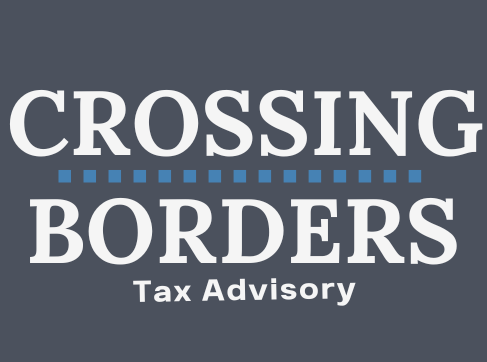Halloween may be the time for tricks, treats, and spooky surprises, but when it comes to your cross-border move, there’s no room for scary missteps. Failing to plan your taxes properly when moving from Canada to the U.S. can leave you facing terrifying tax consequences that linger far beyond October 31st. From departure taxes to foreign asset reporting, getting your cross-border taxes right is essential to avoid haunting mistakes that can cost you dearly.
Here are some common pitfalls that taxpayers often fall into when they don’t plan ahead, and how you can avoid them.
1. Canadian Departure Tax: Beware of Hidden Costs on Foreign Properties and Illiquid Assets or Investments
When leaving Canada, many taxpayers forget about the dreaded Canadian “departure tax.” This tax is levied on any unrealized gains on foreign properties—like that vacation home in Florida you’ve enjoyed for years or shares in a private corporation.
Example: Suppose you own a vacation home in Florida you purchased in 2012 for $150,000 USD and now it is valued at $300,000 USD. When you move, the Canadian government treats this as if you’ve sold the property, even though you haven’t. If you don’t prepare for this, you could be hit with a substantial tax bill on the home’s appreciation in value while you were a Canadian resident. The same applies to other assets like shares in a private company or shares in your taxable investment account (although these are more liquid) .
How to Avoid It: Ensure that you’re aware of and plan properly for the potential gains on all your foreign assets before your departure, and consider the use of elections or deferrals that may help reduce or postpone your tax bill.
2. Non-Resident Tax on Canadian Rental Properties
If you plan on keeping your rental property in Canada after your move, it’s vital to understand the non-resident tax rules. Failure to do so could result in penalties and interest.
Example: A taxpayer moves to the U.S. but keeps a rental condo in Toronto. They fail to file the necessary non-resident tax return (Section 216) and neglect to have 25% tax withheld from the rental income. Not only do they end up owing back taxes, but they’re also liable for late filing penalties and interest—turning what could have been simple compliance into a costly nightmare.
How to Avoid It: Hire a knowledgeable tax advisor who understands both Canadian and U.S. tax rules. They can guide you through proper withholding, reporting and filing procedures to keep you compliant and penalty-free.
3. Foreign Asset Reporting in the U.S.: Don’t Miss Form 5471 – Foreign Corporation Reporting and FINCEN 114 – Foreign Bank Reporting
If you become a U.S. resident, understanding foreign asset reporting requirements is crucial to avoid steep penalties. The U.S. government takes failure to report foreign financial assets seriously—especially when it comes to Form 5471 and FINCEN 114 (FBAR).
Example: A Canadian business owner moves to the U.S. but forgets to file Form 5471, which reports their ownership in a Canadian corporation. Additionally, they fail to report their Canadian bank accounts on the FBAR. The result? Potential penalties of $10,000 per unfiled form per year for Form 5471 and up to $100,000 or 50% of the balance for not filing the FinCen 114.
How to Avoid It: BEFORE you become a U.S. tax resident, engage in proper planning to avoid negative tax consequences and to ensure you meet all reporting requirements. Work with an advisor to gather and file the necessary forms, and stay on top of annual filing deadlines to prevent costly oversights.
4. Double Taxation: Watch Out for U.S. State Tax Traps
Some U.S. states, like California and New York, have their own tax rules that can result in double taxation on Canadian income. For example, Canadian investment income that is already taxed in Canada could also be taxed by your state of residency in the U.S.
Example: A Canadian taxpayer with investment income moves to California. Despite paying tax on the income in Canada, California taxes that same income (AND the income and gains earned in your RRSP) without providing a credit for the Canadian tax paid. This can result in double taxation, eroding your after-tax returns and creating a financial nightmare.
How to Avoid It: Consider the tax laws of the state you’re moving to and plan accordingly. Some states have tax treaties or reciprocal agreements, but others do not. A tax advisor familiar with cross-border issues can help you claim the right tax credits and deductions to avoid double taxation.
5. TFSA Income: No Treats from the U.S.
Tax-Free Savings Accounts (TFSAs) are a popular investment vehicle in Canada, but when you move to the U.S., the rules change. The IRS does not recognize the tax-free status of the TFSA, meaning you’ll owe U.S. tax on any income and gains from the account.
Example: A Canadian taxpayer moves to New York, but keeps their TFSA. Over the next few years, the account grows, generating income. The taxpayer doesn’t report this income on their U.S. tax returns, thinking it’s still tax-free. The IRS eventually audits them, and they face hefty penalties for failing to report the TFSA income.
How to Avoid It: Before your move, consider liquidating your TFSA or reframing your investment strategy. If you decide to keep the account, work with a cross-border tax expert to ensure you report all income correctly on your U.S. tax return and avoid penalties.
Conclusion: Plan Ahead to Avoid Cross-Border Tax Nightmares
Cross-border tax planning can be daunting, but the risks of not planning properly are even scarier. From Canadian departure taxes to U.S. foreign asset reporting and double taxation, the complexities of moving between Canada and the U.S. can trip up even the most well-intentioned taxpayer. Don’t let these tax pitfalls haunt you—by working with an experienced tax advisor who understands the rules on both sides of the border, you can navigate these challenges smoothly and focus on enjoying your new life, worry-free.
At Crossing Borders Tax Advisory, we specialize in helping clients design their tax future, imagining the possibilities of a life with minimized taxes and maximum financial security. Contact us today to get expert guidance for your cross-border move and avoid the traps that could turn your tax situation into a real horror story.
Contact us now to ensure your cross-border tax plan is in order and avoid any spooky surprises down the road.



